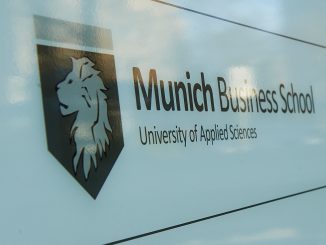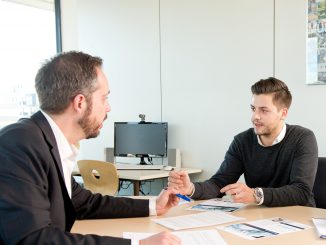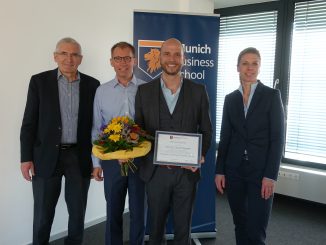
In total, German universities and institutions of higher learning offer 17,437 study programs. This impressive figure is the result of a statistical analysis of the German Rector’s Conference for the winter semester 2014/15. In all these study programs, thousands of professors and lecturers provide academic training to students from Germany and abroad. But what actually is “academic training” and what is the watermark of a good, contemporary academic teacher?
It is quite astonishing that university teachers are still understood as mere imparters of knowledge; and that many of them even perceive themselves as such. Public or private academic institutions still offer lectures and seminars in which these teachers present theories and scientific groundwork, but skip practical reference and relevance.
The fact that knowledge is imparted should not be criticized: For each scientific study program, basics are crucial to lay a foundation and to understand context. To stop at this point, however, would be fatal. Instead, an academic teacher assumes at least three more tasks and plays three more roles – as a bridge builder, moderator and sparring partner.
Bridge builder between theory and practice
Once a theoretical foundation is in place, practical applications must come into focus, in particular in economics study programs. This is achieved, for example, by discussing case studies, excursions to companies, presentations by practical experts as guest lectures or internal student projects in cooperation with enterprises or organizations.
The case study approach, already established in the 19th century by Harvard Law School, uses real entrepreneurial challenges and gives students the opportunity to work out solutions autonomously and to put into practice the knowledge previously acquired (as for instance applying specific analysis tools).
In the ideal case, professors use enterprises as case studies for their teaching that form a part of the students‘ “living environment” (currently, for example Apple, Netflix, DriveNow by BMW/ Sixt or Bayern München; but also regional start-ups where students are clients or employees). Thus, knowledge not only is applied but internalized.
University projects – whether within the framework of a business plan project, a seminar paper or a thesis – also give students opportunities to develop own suggestions and to apply learned methods in practice. In the ideal case, success becomes visible at once, namely if the cooperating enterprise takes up and implements the concepts.
Creating an atmosphere of mutual teaching and learning
The viewpoint according to which the academic teacher is the “sovereign” and only holder of “true” knowledge is obsolete. Many students bring along valuable work experience and knowledge from previous trainings and apprenticeships. Unearthing them is of greatest importance. Striking examples are MBA classes with students who themselves have already mastered entrepreneurial challenges in many years of professional experience. Making such experience visible and discussing it with teachers and the entirety of the fellow students enhance dialogue and multi-perspective learning. In such cases, the university teacher becomes a moderator and facilitator whose task it is to make even controversial and diverging opinions and experiences transparent.
The art of listening and encouraging
It may sound trivial, but many academic teachers still struggle with the challenge of taking students and their trials in the academic environment – and not only there – seriously. Teachers should take the time for comprehensive feedback, discoursing with their students as equals. Their doors should always be open and they should respond promptly to all inquiries. In addition, they should encourage their students to confront certain challenges proactively – for example the realization of plans for an own start-up business, an application for a scholarship or a high-profile job opportunity where major obstacles are expected to block the way. The role of modern university teachers further implies sharing own (positive or negative) profession-related experience and opening up practical networks for students.
Summary
Today, mere content-based knowledge only represents one of the cornerstones of academic teaching. The modern society based on knowledge and education demands much more. The contemporary university teacher must also master skills as a bridge builder, moderator and sparring partner. It is meaningful and reasonable – for all students, all teachers and the training and teaching location of Germany as a whole – that content is presented by modern methods, that theory is connected to practice and that university teachers and their students find approaches for genuine cooperation.




